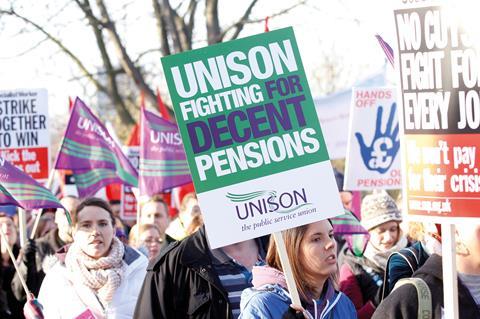On 13 July, the High Court handed down its judgment in the successful judicial review proceedings brought by Unison and 12 other trade unions against the secretary of state for business and trade. Mr Justice Linden found the secretary of state failed to comply with the consultation requirements under s.12(2) EAA 1973 and proceeded to quash the Conduct of Employment Agencies and Employment Businesses (Amendment) Regulations 2022 (CEAEBR 2022).

From 1976, regulations made under the Employment Agencies Act 1973 (EAA 1973) prohibited employment businesses from supplying temporary workers to cover the work of staff taking industrial action. Most recently, this important right against ‘strike-breaking’ was found in regulation 7 of the Conduct of Employment Agencies and Employment Businesses Regulations 2003 (CEAEBR 2003).
In 2015, the government carried out a consultation about the proposed repeal of regulation 7 CEAEBR 2003. This followed a Conservative Party manifesto commitment and happened at the same time the Trade Union Act 2016 (TUA 2016) was making its way through parliament. It received largely negative responses and the Regulatory Policy Committee found the impact assessment to be ‘not fit for purpose as it does not provide sufficient evidence of the likely impact of the proposals to support the consultation’. As such, the government decided against proceeding with the proposal to repeal.
In June 2022, the then secretary of state for business, energy and industrial strategy (Kwasi Kwarteng MP, in the predecessor department) decided to proceed, and sought the repeal of regulation 7 CEAEBR 2003 through CEAEBR 2022 made on 21 July 2022.
A number of trade unions sought judicial review against the government’s decision. Unison and NASUWT represented themselves, and another group of 11 unions was represented separately. The claimants’ arguments followed similar points, namely that CEAEBR 2022 should be quashed because:
1. The secretary of state failed to comply with his statutory duty to consult under s.12(2) EAA 1973; and
2. The decision impermissibly interfered with the rights of the trade unions and their members to freedom of association under Article 11 of the European Convention on Human Rights (ECHR).
The secretary of state resisted the claims and argued the duty to consult was met by the 2015 consultation exercise, or alternatively, that it was ‘highly likely’ the outcome would not have been substantially different if there had been consultation in 2022, so the relief sought should be refused under s.31(2A) of the Senior Courts Act 1981 (SCA 1981).
In respect of Article 11 ECHR, the secretary of state argued there was no interference, or alternatively, that any interference was proportionate and within the government’s margin of appreciation.

Following permission given by Mrs Justice Lieven in December 2022, the separate cases were heard together on 3-4 May 2023.
The High Court held that the aim of the requirement to consult under this specific statutory obligation was to take into account the views and evidence of those who were likely to be well informed. This was to reassure parliament that the case for the measure (ie to repeal regulation 7 CEAEBR 2003) had been tested with interested parties in the sector to improve decision-making and parliamentary democratic principles.
The court rejected the secretary of state’s argument that compliance with its literal terms (ie the 2015 consultation) was sufficient to meet the duty to act fairly.
The judgment was critical of the approach taken by Kwarteng. It found that he had been offered a detailed analysis of the 2015 consultation, although: ‘…it is also indicative of Kwarteng’s lack of interest in evidence or views about the proposal to revoke regulation 7 that the decision was to proceed at exceptional speed… This was despite the lack of an impact assessment at the time of the decision, and despite the evidence available to Kwarteng being that the measure would have negligible beneficial impact in the short term and, quite possibly, an adverse impact on the government’s ability to settle ongoing industrial disputes’ (paragraph 175).
On the decision not to consult further, Kwarteng’s approach was so unfair as to be unlawful and irrational, due to the many important changes that had arisen since 2015 that would have enabled informed decision-making, such as the impact of the TUA 2016, Brexit and Covid-19.
Linden was also not persuaded that a rational and open-minded secretary of state, if s/he were to conscientiously consider responses to a consultation held in 2022, would have been likely to have come to substantially the same decision. Therefore, this part of the defendant’s arguments under s.31(2A) SCA 1981 also failed.
Due to the findings on the first ground of challenge and the claims succeeding, Linden decided against expressing a view on Article 11 ECHR, one reason being that the Court of Appeal would be in just as good a position to decide the matter if the secretary of state decided to appeal. The government confirmed on 20 July 2023 that it would not seek to appeal.
This all means that CEAEBR 2022 stands to be quashed on 10 August. It remains to be seen whether the government plans to re-examine the matter in future, presumably after appropriate consultation has been carried out first.
Bruce Robin is legal officer and in-house solicitor for Unison. The Unison team in this case was led by solicitor Adam Creme, with Bruce and solicitor Emma Pitfield































1 Reader's comment